
Activities
-
 Emma Watson
scored 35 on 9 holes
at PAF Golf Course.
Emma Watson
scored 35 on 9 holes
at PAF Golf Course.
Find Smarter Study Strategies Here
In today’s fast-paced world, students are under immense pressure to succeed academically while juggling multiple responsibilities. Whether you're a full-time student or a working professional pursuing further education, finding effective study strategies is essential to your academic success. The key lies not just in working harder, but in studying smarter. Smarter study strategies can help students make the most of their time, improve information retention, and reduce stress.
With the rise of online learning, students now have access to a variety of tools and flexible platforms that allow them to design learning systems tailored to their individual needs. One such platform is Capella Assessment, which is transforming traditional learning through a competency-based approach that empowers students to take charge of their educational journey.
The Need for Smarter Study Approaches
The traditional model of cramming for exams and memorizaing facts has become outdated in today’s evolving academic landscape. Students now seek learning methods that are flexible, efficient, and aligned with their personal learning styles. This is especially true for adult learners who balance studies with full-time jobs, family obligations, and other life responsibilities.
Smarter study strategies take into account the importance of time management, active recall, spaced repetition, and personalized learning plans. By incorporating these techniques, students not only retain information better but also build the skills necessary for real-world application.
This is where platforms like Capella Assessment shine. Unlike traditional programs, Capella offers assessments that measure your understanding and mastery of content, rather than just time spent in class. This allows learners to study at their own pace and focus on what truly matters — competency and knowledge.
Personalized Learning Plans for Maximum Efficiency
One of the key principles behind smarter study strategies is creating a study plan that works for you. Cookie-cutter methods may work for some, but personalization ensures that each student can study in a way that matches their cognitive style, available time, and subject familiarity. Capella’s model supports this with its self-paced structure and focus on skill mastery.
For instance, learners can assess their strengths and weaknesses early in the course and design their study schedule around that insight. This proactive approach is much more effective than reactive, last-minute studying. By setting clear objectives, dividing large topics into manageable chunks, and incorporating regular reviews, students can significantly increase their productivity.
Another way Capella’s model supports smarter strategies is by focusing on real-life assessments. These aren't just theoretical exercises — they prepare students for practical challenges they’ll face in their careers.
A great example of this is the nurs fpx 4015 assessment 2, which is specifically designed to enhance nursing students’ ability to apply critical thinking in clinical settings. It helps learners understand how their knowledge translates into patient care — a vital component of any healthcare program.
Use of Technology to Enhance Learning
Modern study strategies are heavily supported by technology. Online platforms, mobile apps, flashcards, digital planners, and collaboration tools make learning more interactive and efficient. Capella embraces this digital transformation by offering students access to an online portal where they can complete assessments, receive feedback, and track their progress.
Moreover, the integration of discussion forums, peer reviews, and video resources adds depth to the learning experience. Students aren’t just reading and regurgitating information — they’re engaging with it, applying it, and learning from others.
Additionally, tools like Pomodoro timers, digital notebooks, and quiz apps allow students to structure their study sessions around cognitive science principles. These tools help reduce procrastination, improve focus, and promote active learning.
Smart Time Management Techniques
One of the core pillars of studying smarter is mastering the art of time management. Students who learn how to structure their time effectively are more likely to achieve their academic goals. Some of the most effective techniques include:
Time blocking: Dividing your day into specific time slots for study, revision, breaks, and leisure.
The 80/20 rule (Pareto Principle): Focusing on the 20% of content that will give you 80% of the results.
SMART goals: Setting Specific, Measurable, Achievable, Relevant, and Time-bound study objectives.
Capella’s flexible structure supports all these strategies by allowing learners to choose when and how to complete their coursework. There are no traditional deadlines, which gives students the freedom to design their own academic calendar.
Another assessment that aligns well with smart study and time management is the nurs fpx 4035 assessment 3. It guides nursing students through effective care planning and prioritization, reflecting real-life scenarios where time is of the essence. It not only assesses theoretical knowledge but also encourages learners to think critically about decision-making under pressure.
Active Learning: Beyond Passive Reading
Passive reading and note-taking have long been the go-to study methods for students, but they’re not the most efficient. Smarter study techniques emphasize active learning — a method that involves engaging with the material in a dynamic way.
Active learning includes summarizing material in your own words, teaching concepts to others, using mind maps, and self-quizzing. These methods help students retain information longer and understand it on a deeper level.
Capella’s assessments are built around active learning. Instead of testing memorized facts, students are required to apply their knowledge in realistic scenarios. This shift ensures a much higher level of engagement and understanding.
Peer Interaction and Feedback
Learning from peers is another component of smarter study. Explaining complex concepts to classmates, engaging in discussion groups, and participating in collaborative projects can greatly enhance comprehension.
Capella encourages this through peer discussion boards and group assignments. These forums allow students to exchange ideas, clarify doubts, and gain multiple perspectives on the same topic — a proven method to reinforce learning.
Another excellent example of applying collaborative strategies is found in the nurs fpx 4035 assessment 5. In this assessment, students are expected to work on healthcare quality improvement plans, often requiring input from various stakeholders, reflecting real-world team collaboration.
The Role of Self-Assessment
Self-assessment is one of the most underrated yet powerful tools in smarter studying. Regularly evaluating your understanding and progress helps identify gaps in knowledge early. It also helps with motivation by showing how far you’ve come.
Capella incorporates this concept into its competency-based model. After every assessment, students receive detailed feedback that highlights strengths and areas for improvement. This helps guide future learning and keeps motivation levels high.
Additionally, many students benefit from keeping a learning journal — a space where they reflect on what they’ve learned, what they struggled with, and how they plan to improve. This practice deepens learning and promotes metacognition.
Mindfulness and Mental Clarity
No study strategy is effective without a clear and focused mind. Students who adopt mindfulness practices such as meditation, journaling, or even regular breaks are more likely to stay mentally healthy and perform better academically.
Smarter study isn’t just about academic hacks — it’s about creating a holistic lifestyle that supports learning. Sleep, nutrition, exercise, and mental health all play critical roles in information retention and overall cognitive performance.
Capella's flexible learning model indirectly supports these wellness strategies by eliminating rigid deadlines and offering learners more control over their schedules. This results in a less stressful, more balanced learning environment.
Building a Study Ecosystem
Instead of relying on a single method, the smartest students build a study ecosystem — a comprehensive setup that includes:
A distraction-free environment
A reliable routine
Multiple learning resources (videos, books, podcasts, etc.)
Tools for tracking progress
Support from peers and instructors
Capella encourages this ecosystem through its structured yet flexible learning system, personalized feedback, and supportive academic environment. Students are not just learning for grades — they are learning for life and career success.
Jun 1, 2025 Details
Honours
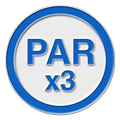
3 Par Streak
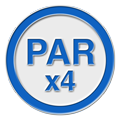
4 Par Streak
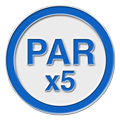
5 Par Streak

6 Par Streak

Break 100
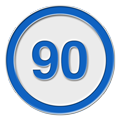
Break 90
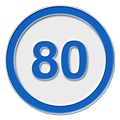
Break 80

Marksman

Smarter Learning Help That Works
In today’s fast-paced academic environment, traditional study methods no longer cut it. Students are juggling multiple responsibilities — work, family, personal growth, and education — and they need smarter learning solutions that actually work. The one-size-fits-all classroom model isn’t always effective anymore. That’s why a shift toward personalized, flexible, and efficient learning strategies is not just preferred but essential.
Smarter learning is all about using strategies, tools, and platforms that allow learners to absorb more knowledge in less time, with better results. It includes optimizing how we study, where we learn, and the support systems we use along the way. Whether you're a full-time student or a professional returning to school, smarter learning help can make the difference between surviving and thriving.
Among the top solutions today is the Capella Flexpath Assessment, a learning model that redefines academic success. With a flexible, competency-based approach, it empowers students to control the pace and sequence of their learning while aligning it closely with real-world applications.
Personalized Learning for Real Results
The idea that every student learns the same way is outdated. Some people learn best by watching videos; others prefer reading or hands-on practice. Smarter learning recognizes these differences and adapts content delivery to match individual learning styles. This personalization helps learners retain information better, stay engaged longer, and achieve goals faster.
Learning platforms now offer adaptive technology that identifies what students know and what they still need to learn. This personalized feedback loop helps focus study time where it matters most. Instead of wasting hours on content you already understand, smarter learning tools guide you to what you need to work on.
This model is especially effective in high-pressure programs like nursing, where knowledge must be both deep and applicable. Assessments such as nurs fpx 4000 assessment 5 focus on real-life healthcare scenarios, ensuring that students aren't just memorizing theory but are actually learning to apply it in practical contexts.
Time-Efficient Study Methods
Smart learners know how to make the most out of limited time. Instead of endless reading sessions, they utilize proven techniques like the Pomodoro Technique, spaced repetition, and active recall. These strategies are scientifically supported to improve memory, focus, and retention.
For example, spaced repetition involves reviewing material at increasing intervals to reinforce long-term retention. It’s far more effective than cramming because it mirrors how the brain naturally stores information. Similarly, active recall — testing yourself instead of passively reviewing notes — forces the brain to work harder, strengthening neural pathways.
By combining these methods with digital tools like flashcard apps, mind mapping software, and scheduling platforms, students can create a personalized, tech-enabled study system that saves time while maximizing outcomes.
The Importance of Flexibility
Flexibility is a game-changer in modern education. Not everyone has the luxury of attending live lectures or fixed study hours. That’s why asynchronous learning options, on-demand content, and self-paced modules are key to smarter learning help. They allow learners to build their own schedules, study during peak productivity hours, and balance education with personal commitments.
Capella’s FlexPath model is a prime example of how flexibility enhances learning. Students can complete courses at their own speed, repeat concepts as needed, and demonstrate competency when they're truly ready — not just when the calendar says it’s time.
Courses like nurs fpx 4055 assessment 4 provide clear, practical guidelines while offering students the autonomy to decide how and when they demonstrate their skills, removing the pressure of rigid deadlines.
Real-Time Feedback for Growth
Feedback is essential to improvement. But traditional education systems often fail in this regard, offering grades weeks after an assignment is submitted — long after the student has mentally moved on. Smarter learning support emphasizes immediate, constructive feedback that allows learners to make corrections and grow in real-time.
Platforms using AI and intelligent assessment tools can now give instant insights into performance. They highlight not just what’s wrong, but why it’s wrong, and how to fix it. This kind of feedback loop accelerates learning and builds confidence.
Moreover, instructors and mentors are becoming more accessible through virtual office hours, discussion boards, and chat support, creating a support network that encourages consistent improvement and engagement.
Interactive and Engaging Learning Formats
Gone are the days of reading endless PDF documents or sitting through hour-long lectures. Smarter learning help incorporates multimedia content to keep students engaged and stimulated. Whether it's interactive simulations, video case studies, infographics, or quizzes, diverse content formats cater to different learning styles and help break the monotony of conventional study.
For example, nursing students preparing for real-world practice benefit greatly from interactive patient scenarios and clinical simulations. These tools don't just teach—they immerse. By making education more engaging, students are more likely to stay motivated, retain information, and excel.
The structure of assignments like nurs fpx 4905 assessment 2 reflects this shift. Instead of just writing papers, students engage in planning, evaluating, and implementing strategies that resemble real-world clinical experiences.
Collaborative Learning with a Purpose
Another pillar of smarter learning is collaboration. Learning from peers, discussing ideas, and engaging in group activities deepen understanding and build soft skills like communication and teamwork. Virtual learning platforms today offer forums, group workspaces, peer feedback, and collaborative projects that mimic real-life working environments.
By discussing case studies or debating different approaches, students don’t just passively absorb information—they actively contribute to and refine their understanding. This kind of learning is not only effective but also prepares students for professional environments where teamwork and critical thinking are essential.
Smart learning communities also foster accountability. When you’re learning with others, you’re more likely to stay on track, ask for help when needed, and offer support in return.
Motivation Through Milestones
Staying motivated is one of the biggest hurdles in long-term education programs. Smarter learning systems solve this by breaking down long-term goals into smaller, achievable milestones. Every mini-accomplishment — a quiz passed, a module completed, feedback received — becomes a confidence booster.
Many platforms gamify this process by adding progress bars, points, badges, or completion rewards. While it might seem small, this kind of positive reinforcement keeps learners engaged and motivated through longer, more challenging courses.
Moreover, having clear visibility into what you’ve achieved and what’s ahead creates a sense of momentum. It’s much easier to stay committed when you can see your growth in real-time.
Combining Academic and Practical Knowledge
Smarter learning help doesn’t separate theory from practice. Instead, it integrates them, ensuring students don’t just memorize facts but know how to use them in real-world scenarios. This is especially important in professional fields like nursing, engineering, and business.
Capella’s FlexPath model encourages students to apply learning to real-life contexts immediately. Whether it's through simulated clinical environments or applied business strategies, the knowledge is always contextual, relevant, and practical.
Assignments often mirror job tasks rather than academic hypotheticals. This not only prepares students for their careers but also makes learning more meaningful and engaging along the way.
Accessibility and Inclusivity
One of the unsung benefits of smarter learning help is accessibility. Whether you’re a single parent, a working professional, a military spouse, or living in a rural area, flexible, online education opens doors that traditional education might keep closed.
Today’s smarter platforms are built to be inclusive — offering screen readers, captioned content, multilingual options, and mobile access. No matter your background, financial status, or schedule, smart learning tools make it possible to receive a quality education from anywhere in the world.
This approach doesn’t just help individuals — it builds a more educated, empowered society.
Technology as a Partner, Not a Replacement
Some fear that technology is replacing traditional educators, but in reality, it's enhancing them. Smart learning systems allow teachers and mentors to better understand student needs, track progress, and personalize guidance.
With the help of data analytics and AI, instructors can identify who’s struggling, who’s excelling, and who might need a different approach. This kind of targeted support is almost impossible in a crowded traditional classroom but is easily achievable with today’s digital tools.
Rather than removing the human touch, smart learning allows for deeper, more meaningful interaction between students and educators.